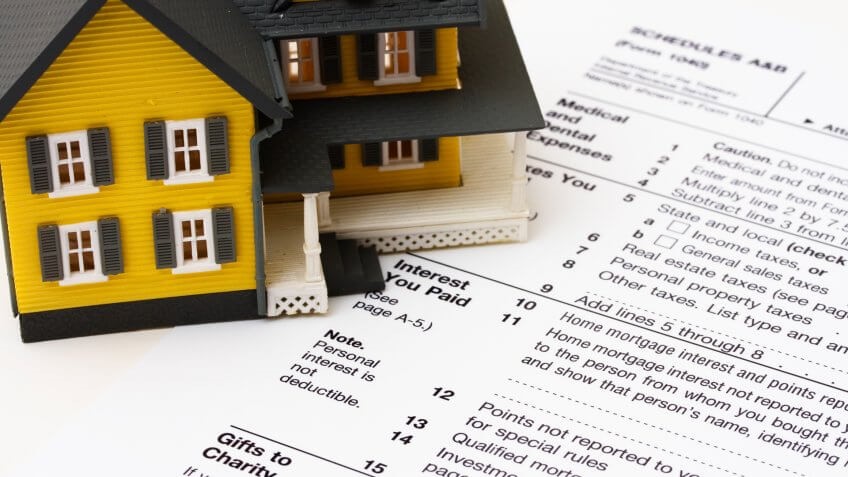Lucky Number 7 for First-Time Homeowners

With the tax code constantly changing, first-time homebuyers need to educate themselves to understand year-to-year changes. As an incentive to buy homes, the government provides tax breaks to existing and new homeowners. Homeowners receive multiple tax deductions, tax credits and other breaks that aren’t available to those who rent. If you bought your first home in 2016, it is smart to familiarize yourself with current homeowner tax breaks so you can take advantage of them and save some money.
- HOME MORTGAGE INTEREST DEDUCTION
The mortgage interest deduction is one of the largest home tax breaks and is a significant new homeowner tax credit. It covers interest paid on loans of up to $1 million, or $500,000 if you’re married but filing a separate return. This deduction can especially benefit borrowers with new loans because interest changes on mortgages are typically steeper in the early years of the mortgage’s term. Don’t miss out on this money saving tax credit. Your loan provider should send you a form 1098 which will show how much interest you paid the previous year.
Instructions For Home Mortgage Interest Deduction
- MORTGAGE INTEREST CREDIT
The federal government's mortgage interest credit provides another chance for first-time homebuyers to claim a tax break for the mortgage interest they paid. Unlike the mortgage interest deduction, which reduces your taxable income, this mortgage interest credit directly counts against your tax bill, lowering what you owe. To be eligible for this strategic tax break, a state or local government must have issued you a MORTGAGE CREDIT CERTIFICATE. Typically, this certificate is issued when you originate your mortgage. It tells you how much interest you can claim as a credit. If you also claim a mortgage interest deduction when you file your taxes, you must reduce the credit by that amount. Mortgage Interest Credit Form
- MORTGAGE POINTS DEDUCTION
You can also deduct what you pay in points to obtain the mortgage loan in the first place. Mortgage points are prepaid interest that can help a borrower qualify for a lower interest rate over the life of the loan. How to Deduct Mortgage Points on Your Tax Return
- TAX FREE IRA WITHDRAWALS
Saving money for a down payment and closing costs is something many people have to do when buying a home. The IRS says you can pull funds from your IRA to help. You can take up to $10,000 from your IRA without penalty to buy a home, although you'll still need to pay taxes on the money. Your 401k plan does not qualify for the exception to the 10 percent penalty. How to Tap an IRA for a Home Purchase
- PROPERTY TAX DEDUCTION
Property taxes are one of the many advantageous tax breaks for first-time homebuyers. You can deduct property taxes paid during the year for which you're filing. If you purchase a home midway through the tax year, you can claim all taxes paid from the date of sale onward. How to Claim Property Taxes
- HOME IMPROVEMENT TAX BREAKS
Improvements you make to a home can qualify for a tax break. If you use a home equity loan or other loan secured by your home to finance improvements, the loan will qualify for the same mortgage interest deductions as your main mortgage. Home Improvements that are Tax Deductible
- HOME ENERGY TAX BREAKS
Unfortunately, two property-related home improvement tax credits have been eliminated as of Jan. 1, 2017. That means both credits will no longer apply beginning with the 2017 tax year. They are: theNonbusiness Energy Property Credit and the Residential Energy Property Tax Credit. However, you can still claim these credits if you made qualifying improvements to your home during the 2016 tax year. Keep all receipts and contracts from the home improvements and useForm 5695 to file for this credit.
